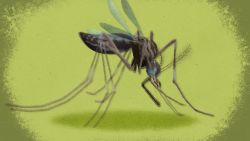Story highlights
WHO declares an emergency over the virus and its potentially linked health issues
The agency has said the virus is "spreading explosively"
Brazil officials: Zika only risk to pregnant women, shouldn't deter tourists from attending Summer Olympics
The World Health Organization declared a “public health emergency of international concern” Monday over the Zika virus and the health problems that doctors fear it is causing.
The agency said the emergency is warranted because of how fast the mosquito-borne virus is spreading and its suspected link to an alarming spike in babies born with abnormally small heads – a condition called microcephaly – in Brazil and French Polynesia.
Reports of a serious neurological condition, called Guillame-Barre Syndrome, that can lead to paralysis, have also risen in areas where the virus has been reported. Health officials have specifically seen clusters of this in El Salvador, Brazil and French Polynesia, according to WHO’s Dr. Bruce Aylward.
CDC director: What we’re doing about the Zika virus
The conditions have not yet been conclusively linked to the virus.
“The experts agreed that a causal relationship between Zika infection during pregnancy and microcephaly is strongly suspected, though not yet scientifically proven,” Dr. Margaret Chan, the WHO director-general said.
But the large area potentially affected by the virus, the lack of vaccines and reliable diagnostic tests, and lack of population immunity in the affected countries contributed to the need for the declaration, according to the WHO.
Chan described Zika as an “extraordinary event” after the first meeting of the International Health Regulations Emergency Committee in Geneva, Switzerland.
“Members of the committee admit that the situation meets the conditions for a public health emergency of international concern,” she said. “I have accepted this advice. I am now declaring that the recent cluster of microcephaly and other neurological abnormalities reported in Latin America following a similar cluster in French Polynesia in 2014 constitutes a public health emergency of international concern.”
The declaration is intended to facilitate international coordination of tracking, research and response to the virus and its effects.
RELATED: Halting the spread of Zika into the U.S.
Aylward was clear the Zika virus itself is, “not a clinically serious infection,” but that the associated concerns prompted the move.
Last week, the agency said the virus was “spreading explosively” in the Americas, with as many as 3 million to 4 million infections possible over 12 months.
On Monday, the Pan American Health Organization added Costa Rica and Jamaica to the list of nations in the Americas where Zika virus is currently circulating. There are 28 nations currently on the list and health officials say they are monitoring the situation carefully and updating the list as necessary.
Zika at the 2016 Olympics in Brazil
In Brazil, officials insisted on Monday that the Zika virus is only a risk to pregnant women and should not deter tourists from attending the 2016 Summer Olympics in Rio de Janeiro.
“If someone is bitten by a mosquito carrying the Zika virus, the damage is more dramatic if we are talking about a pregnant woman. If I am a man or woman, unless I’m pregnant, I would develop the antibodies necessary to fight virus in 3 or 4 days,” said Jacques Wagner, chief of staff to Brazilian President Dilma Rousseff, following an emergency meeting about Zika on Monday with the President and 31 cabinet ministers.
“Unless we are talking about a pregnant woman, there is zero risk – it’s zero in the sense of something major happening,” said Wagner in response to reporter questions about how the virus might impact attendance at the Olympics being hosted by Brazil in six months’ time.
CNN’s Debra Goldschmidt and Flora Charner contributed to this report.
















